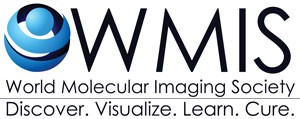The World Molecular Imaging Society is an international scientific educational organization dedicated to the understanding of biology and medicine through multimodal in vivo imaging of cellular and molecular events involved in normal and pathologic processes and utilization of quantitative molecular imaging in patient care.
The World Molecular Imaging Society (WMIS) was established in 2011 by integrating the Academy of Molecular Imaging and the Society for Molecular Imaging into a single streamlined society focused on advancing the field of molecular imaging (MI). Within a relatively short time, the WMIS has significantly expanded its global footprint in this field by building and expanding upon existing strengths and infrastructures of these two organizations.
WMIS President

H. Charles Manning, PhD
Professor, Department of Cancer Systems Imaging
Scientific Director of the Center for Advanced Biomedical Imaging
Director of the Cyclotron Radiochemistry Facility
MD Anderson Cancer Center
H. Charles Manning is a chemist with a background in radiochemistry, medicinal chemistry and imaging science. Continuously supported by the National Cancer Institute (NCI) throughout his career, as well as the Department of Defense, industry and philanthropy partners, Dr. Manning’s lab discovers and translates radiopharmaceuticals for imaging and therapy.
After beginning his independent research career at Vanderbilt in 2006, the Manning Laboratory was recruited to MD Anderson Cancer Center in Houston, Texas in September, 2020. At MD Anderson, Dr. Manning is a Professor in the Department of Cancer Systems Imaging and serves as the Scientific Director of the Center for Advanced Biomedical Imaging (CABI) and Director of the Cyclotron Radiochemistry Facility. He co-leads the Institutional Theranostics Program and is a Cancer Prevention and Research Institute of Texas (CPRIT) Scholar.
Many radiopharmaceutical- and drug development-based projects in the Manning laboratory focus on molecular targets related to cancer cell metabolism, with current emphases on solute carrier-based amino acid transport. In addition to these biologically- and clinically-driven programs, the Manning laboratory is developing new radiochemistry technologies that enable dose-scale radiopharmaceutical production using inexpensive and disposable microfluidic devices.
